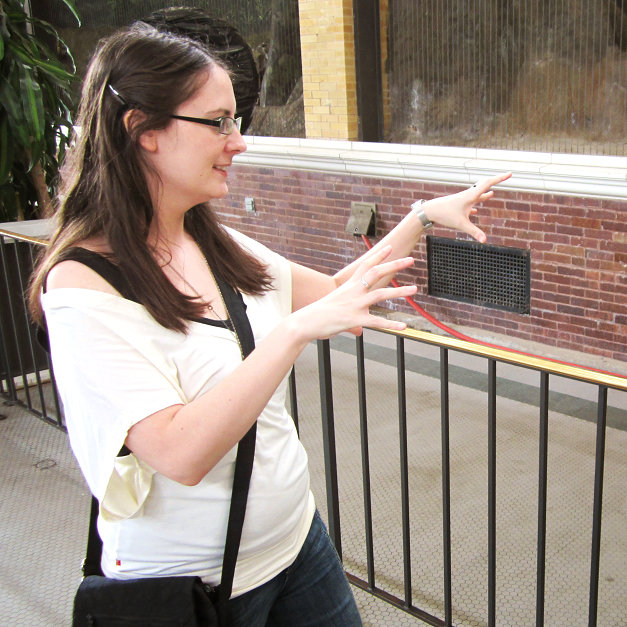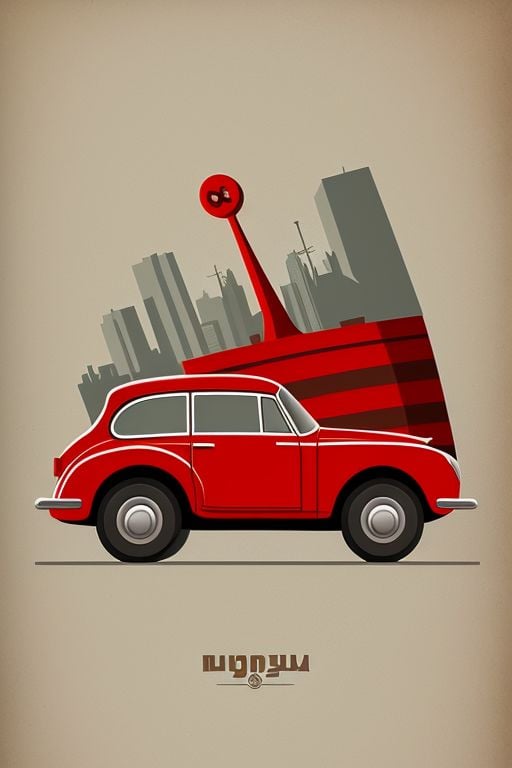Based on the excerpt from this Discworld book, what other items do you use regularly that would fit in this theory? (Boots and shoes are fair game!)
Text transcript for people who want it:
[The reason that the rich were so rich, Vimes reasoned, was because they managed to spend less money.
Take boots, for example. He earned thirty-eight dollars a month plus allowances. A really good pair of leather boots cost fifty dollars. But an affordable pair of boots, which were sort of OK for a season or two and then leaked like hell when the cardboard gave out, cost about ten dollars. Those were the kind of boots Vimes always bought, and wore until the soles were so thin that he could tell where he was in Ankh-Morpork on a foggy night by the feel of the cobbles.
But the thing was that good boots lasted for years and years. A man who could afford fifty dollars had a pair of boots that’d still be keeping his feet dry in ten years’ time, while the poor man who could only afford cheap boots would have spent a hundred dollars on boots in the same time and would still have wet feet.
This was Captain Samuel Vimes ‘Boots’ theory of socioeconomic unfairness.]
Bonus: suggest ways you can repair/restore your item/other people’s items.
It’s expensive to be poor
It really is. I have a few friends who are not doing very well, and it amazes me the shit they have to pay for.

This whole thread reminded me of this old viral tweet
This and Chocolate Rain, I guess that’s two times he’s made an impression on my life now
Wait! This is the same guy?
Yup!
I’ve been paying and paying and paying for that damn root canal.
That one dental problem has cost me way more money than i made at that job in total.
I see Sir PTerry, I upvote.
And hey, just sliding this totally smoothly into the conversation, did you all know we have !discworld@lemmy.ml (Lemmy / Kbin)
*sidles out awkwardly*
Super neat!! Thanks for the link. :) If anyone likes the style of writing, go look at the Discworld community. These books are great.
I’m hoping this quote can drive some critical thinking about sustainability, and maybe some discussion about how to better what people CAN afford/already have.
My problem is I don’t know what products are expensive because they are good, and what products are a scam. No idea how to even search to find out either.
Oh easy, I just check for a thread on reddit where two guys are at each other’s throats arguing the merits of different crescent wrenches
…oh, wait.
Find people on the internet who seem similar to you and see what they did and what the result was, see what the best result was and do that. Takes a long time, and may or may not be worth it, but for expensive purchases it may be.
It depends on the category of the item you are planning to buy, there are lots of gear reviews blogs/sites for outdoor gear as well as tech. As for clothing, I YouTube the brand for review videos… A bit more time consuming than just impulse buying on the spot but this way, you can make an educated guess on the quality of what you are planning to spend your hard earned money on.
Consumer Reports had been around for a long time and should be available at any library. There is the NYT Wirecutter and r/BuyItForLife. You can also see what friends and family have night and how it worked out. On YouTube, Rose Anvil cuts apart footwear of all price points to see what is worth it, and Project Farm tests tools and some household items.
You’ll always find people saying brand A is great and brand B stinks and then someone who says the opposite, but after a while you’ll notice some names that just pop up as good or bad a lot. Also keep in mind some stuff will fit one person better or be more ergonomic for them, so keep that in mind when you see the brand A or B is better or worse discussions.
Tldr, don’t buy the cheapest or the most expensive thing. One is cutting corners, and one has extra behavior and whistles that are nice but not necessary to function.
Car repair. Towing and fixing a car with a ruined engine is ten times as much as doing regular maintenance. And it’s not just the dollar cost of oil changes and belts: When you are better off, you have the free time to run that errand to do those things.
Dental care, for almost the exact same reasons.
General healthcare has all of those factors PLUS if your general health goes bad you may not be able to work so now fixing it is expensive and you have no income.
Car
repair.Sorry, I usually don’t make these shallow comments. But cars are just another way to accumulate money for the rich few. Transportation is the boot, and we can’t afford good public transit and international railways.
Sorry, I don’t think I fully follow. Would you care to explain how cars are a way to accumulate money for the rich?
Renting -
Buying a house is like having a bank account you can’t access until you want to move. Renting a house is just paying into someone else’s bank, and you end up unable to save for your own.
The rich don’t get rich by saving more or spending less: though it is an advantage when they choose to use it.
The rich get rich by exploiting the labor (or income from labor) of those less fortunate than them.
On the plus side, short notice and a little risk and you can just move. New job? Bad neighbour? New family? Other changes in needs?
Trying to sell property can be a massive pain and take ages in many places.
Boots, shoes, clothes, technology, cars, houses, furniture.
Everything.
@H3L1X reminds me of one rule from woodworkers/DIYers – buy a cheap set of tools, when one of the tools breaks, replace that one tool with a more expensive one (upgrading based on use)
This works for all sorts of things, especially automotive tools, but there’s one exception that I live by.
Don’t cheap out on the things that come between you and the ground.
Your shoes, your socks, your tires, your bed, the chair you spend twelve hours a day in. Those are worth some investment. It pays dividends.
That is true, I do quite like that rule.
Food.
If you don’t have much money then it can be a lot harder to eat healthily, due to cost of fresh ingredients and time to cook, which is time you may not have.
This can lead to eating a lot of unhealthy and processed food, which then causes knock-on costs later with poor health, illness, and medical bills that aomeone with the money to eat healthily might have been able to avoid.
There’s a reason why fast food companies have more shops per capita in lower socio-economic areas. For a lot of families asking them to “eat better” is like telling them “stop being poor”.
I think the “time to cook” is the kicker here. Healthy food is really much cheaper, but you have to buy ingredients to cook with, not ready-to-eat or close to.
Things like dried lentils, beans, rice, etc are way cheaper than even inexpensive canned. In-season produce or frozen counterparts, too.
I think so many people underestimate the value of time.
Renting a house/appartment vs. owning is a pretty big one, same with renting vs owning most things.
Nice tools vs cheap tools. It really does seem to be everything, from clothes, to tools, to food and healthcare.
GNU STP.
add insult to injury, banks not approving loans for homebuying even when the mortgage payment would be less than the current rent …
Home ownership bigtime. Yeah I have to do way more work to keep my house in good shape but every time I do it literally adds value to the place.
But I know Im damn lucky to own my own place. Not an option for many around the world.
Yeah, the maintenance can be a pain, but it does add value, and it is pretty satisfying to improve things.
GNU STP.
My mother always says: we are not so rich to afford cheap stuff.
For exactly this reason
I like this even better than mine.
Problem now is “luxury” brands, which is the same shit quality at a huge markup. Quality is often not even a consideration for producers these days.
I always thought that laundry was the best example of this.
Poor people go to the laundrette, which is expensive over time and time-consuming.
Less poor people buy cheap washing machines which are expensive to run and break sooner.
Rich people buy highly efficient washing machines which are cheaper to run and last for years.
And on top of that poor people buy cheaper clothes, which wear out sooner (as with the boots example) and dry their clothes indoors on hangers which, again, takes longer and also creates damp, unpleasant living conditions!
EDIT: Typos.
I agree with your point, but a lot of the more expensive washing machines are not that reliable, and expensive to fix. I had to spend $200 on a refurbished circuit board. They had a whole business dedicated to repairing those boards. Usually cheap ones have simple parts that (used to be) cheap.
He didn’t predict how bad it would get. Corporations have been at war against the concept of ownership for the poor and middle class. Everything is a subscription now so you can’t even own anything and housing is too expensive to buy, you can only rent.
“you will own nothing and be happy about it” a quote from the ‘great reset’… A literal agenda from the international monetary fund (IMF). We have to resist that notion in everywhere or we risk accelerating our fall into the dystopian future that these greedy fucks are trying to set course to…
In the UK you have to pay car tax which basically is a tax on vehicles which obstensively covers road maintenance.
If you pay monthly then you have to pay 12 units for one year.
However if you can afford to pay one lot all in one go then you only have to pay the equivalent of 10 units. Essentially you get two months for free.
Now presumably this is because it is easier to account for your budget if you get it all in one job lot right at the beginning of the year. So it is worth them giving you a economic incentive to do that. But loads of people cannot afford that so they end up paying more money.
Most people keep a car for what five ir six years? In that time the effectively pay an entire extra years worth of road tax if they pay monthly rather than yearly.
Boo.
I don’t live in the UK, would you be willing to give an example of what the yearly lump sum is vs the monthly fee? I’m genuinely curious!
It depends on vehicle emissions.
Bagels which put out more carbon dioxide get taxed more heavily. This has always been the case but it’s how it’s always been worked out as long as I’ve been driving. I’m not sure how it worked historically.
My car is a diesel. So it’s output is worse (greater) than a petrol car.
My yearly tax is, paying monthly, £180 per year. My yearly tax is, paying yearly, £170 per year.
Not much for my car, but then again it’s a boring ass people carrier with suspect electronics, because I’m 180,000 years old.














